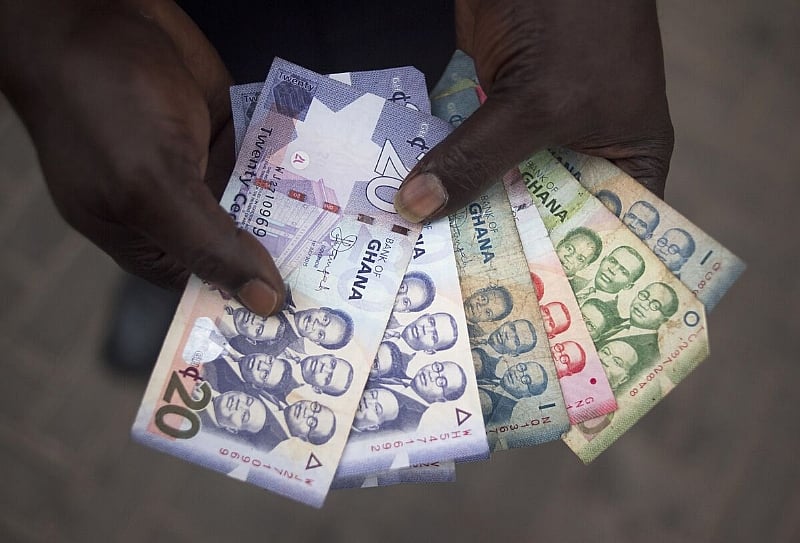The Ghanaian Cedi exhibited mixed performance against the United States dollar on Tuesday, December 31, 2024, holding steady in its selling rate but experiencing a slight depreciation in its buying rate. According to data from Cedirates.com, a reputable source for currency information in Ghana, the Cedi’s buying rate stood at GHS14.61 per US dollar, reflecting a 2 pesewa decline compared to the previous day. Conversely, the selling rate remained unchanged at GHS15.11 per US dollar. This divergence in the buying and selling rates indicates a nuanced currency market dynamic, potentially influenced by factors such as supply and demand fluctuations or prevailing market sentiment.
The interbank market, which represents transactions between banks, revealed a slightly different picture. The Cedi traded at GHS14.70 for buying and GHS14.72 for selling against the US dollar. This marginal difference between the interbank and retail rates suggests a relatively stable exchange rate environment, with minimal arbitrage opportunities between these two market segments. The data highlights the competitive nature of the Ghanaian foreign exchange market, with various players offering slightly different rates, allowing individuals and businesses to choose the most favorable options.
Against other major currencies, the Cedi displayed distinct trends. The British Pound Sterling exhibited stronger performance against the Cedi, with average buying and selling rates of GHS18.09 and GHS19.00, respectively. Meanwhile, the Euro traded at GHS15.08 for buying and GHS15.79 for selling. The interbank market mirrored these trends, with the Pound selling at GHS18.42 and the Euro at GHS15.29. These rates reflect the relative strengths and weaknesses of these currencies in the global market, as well as specific factors influencing their exchange rates against the Cedi, such as trade balances and international capital flows.
Remittance services, a vital component of the Ghanaian economy, offered competitive exchange rates for individuals sending money from abroad. LemFi and Afriex, two prominent money transfer platforms, provided attractive rates for US dollar transfers, with GHS14.55 and GHS14.30 per dollar, respectively. These rates often undercut traditional banking channels, offering substantial savings for those sending money to Ghana. For British Pound transfers, LemFi and Afriex offered buying rates of GHS18.30 and selling rates of GHS14.75, respectively. Euro transfers saw Afriex offering a selling rate of GHS14.90, while LemFi offered a buying rate of GHS15.20. The competitive landscape of remittance services underscores the importance of these platforms in facilitating international money transfers and providing favorable exchange rates for individuals and families.
The data also sheds light on the cost of international online subscriptions for Ghanaian consumers. Payment processors Visa and Mastercard offered a US dollar exchange rate of GHS15.78 for those renewing services like Netflix, Spotify, or Apple Music. This rate reflects the fees and charges associated with international transactions and provides a benchmark for consumers to assess the cost of accessing global digital content. The relatively higher rate compared to other market segments highlights the complexities involved in cross-border payments and currency conversions.
In conclusion, the Ghanaian Cedi’s performance on December 31, 2024, presented a mixed picture. While the selling rate against the US dollar remained stable, the buying rate experienced a slight depreciation. The interbank market reflected a relatively stable exchange rate environment. The Cedi’s performance against the British Pound and the Euro mirrored broader global currency trends. Remittance services offered competitive exchange rates for international money transfers, while payment processors provided a specific rate for international online subscriptions. These diverse data points offer valuable insights into the dynamics of the Ghanaian foreign exchange market and its impact on individuals, businesses, and the broader economy. The observed variations in exchange rates across different market segments highlight the importance of staying informed about prevailing market conditions and choosing the most advantageous exchange rate options available.


